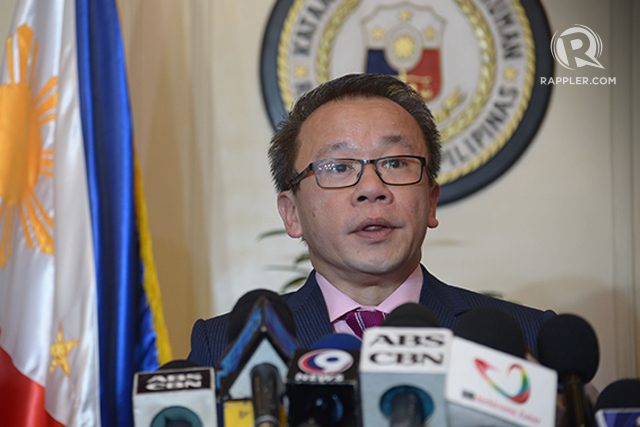SUMMARY
This is AI generated summarization, which may have errors. For context, always refer to the full article.

MANILA, Philippines – The Supreme Court (SC) appreciates that a private citizen sees the importance of the judiciary having fiscal autonomy, but said such concerns should be brought up with Congress and not the court.
The SC en banc unanimously dismissed a petition that asked the High Court to stop attempts in the House of Representatives to either overhaul or abolish the Judiciary Development Fund (JDF).
The court advised the petitioner to lobby with the legislative chambers instead.
Petitioner Rolly Mijares may discover in Congress lawmakers “who may have a similar enthusiastic response to truly making the needed investments in the Rule of Law,” the SC ruled.
“Courts are not constitutionally built to do politcal lobbying (nor) trained to produce a political statement or a media release,” the decision read.
The SC justices, however, appreciated “Mijares’ concern for the judiciary.”
“It is often through the vigilance of private citizens that issues relating to the judiciary can be discussed in the political sphere…. His crusade is not a lost cause,” the SC decision read.
On Thursday, January 22, SC spokesperson Theodore Te said the subject petition was filed “ostensibly to compel the Court to exercise its judicial independence and fiscal autonomy against the perceived hostility of Congress.”
The JDF – a 30-year-old fund sourced from legal fees collected by the courts – has been the subject of close scrutiny by President Benigno Aquino III’s allies in Congress. This was after the SC ruled that schemes under Aquino’s spending program are unconstitutional.
The SC ruled that 3 key schemes in the Disbursement Acceleration Program (DAP) are unconstitutional. These include declaring savings before yearend, transferring these savings to another branch of government, and using these savings for projects, activities, and programs not outlined in the appropriations law.
A report by the Philippine Center for Investigative Journalism showed the highest amounts released from the DAP went to the districts of stalwarts and allies of the Liberal Party, the President’s party.
The resolutions to review the JDF were also filed by Aquino’s allies in the lower House.
Chief Justice Maria Lourdes Sereno turned down invitations from House Speaker Feliciano Belmonte Jr to appear in these hearings and asked the chamber to spare the judiciary as it reviews its ruling on DAP.
Need for fiscal autonomy reinforced
In its decision on Mijares’ petition, the SC said funds for the judiciary are insufficient.
It also defended anew the use of the JDF, which it said “is regularly accounted for by this Court on a quarterly basis.”
“The financial reports are readily available in the Supreme Court’s website,” the SC decision read.
“These funds, however, are still not enough to meet the expenses of the lower courts and guarantee credible compensation of its personnel,” it read further.
“The reality is that halls of justice exist because we rely on the generosity of local government units who provide additional subsidy to our judges. If not, the budget for the construction, repair and rehabilitation of halls of justice is with the Department of Justice,” it read.
The JDF is a special fund created through Presidential Decree 1949, signed by former president Ferdinand Marcos in 1984 “to help ensure and guarantee the independence of the Judiciary as mandated by the Constitution and public policy” and to aid the “impartial administration of justice.”
It is used to augment allowances of members and personnel of the judiciary and to finance the purchase, maintenance and repair of office equipment and facilities.
At least 80% of the JDF is used for the allowances of court employees, with amounts set relative to their salaries. Not more than 20% goes to judiciary facilities.
The lowest-earning employees get the highest amount from the JDF, while justices or the highest-earning officials of the court get the lowest. The monthly employee allowance from the JDF ranges from P2,200-P2,000. – Rappler.com
Add a comment
How does this make you feel?
There are no comments yet. Add your comment to start the conversation.